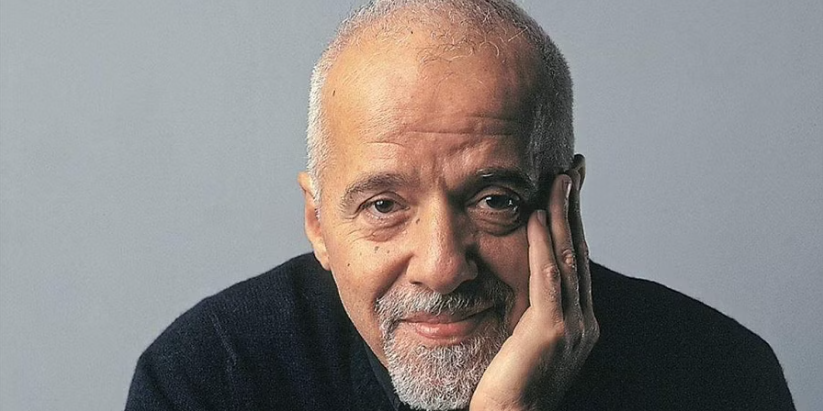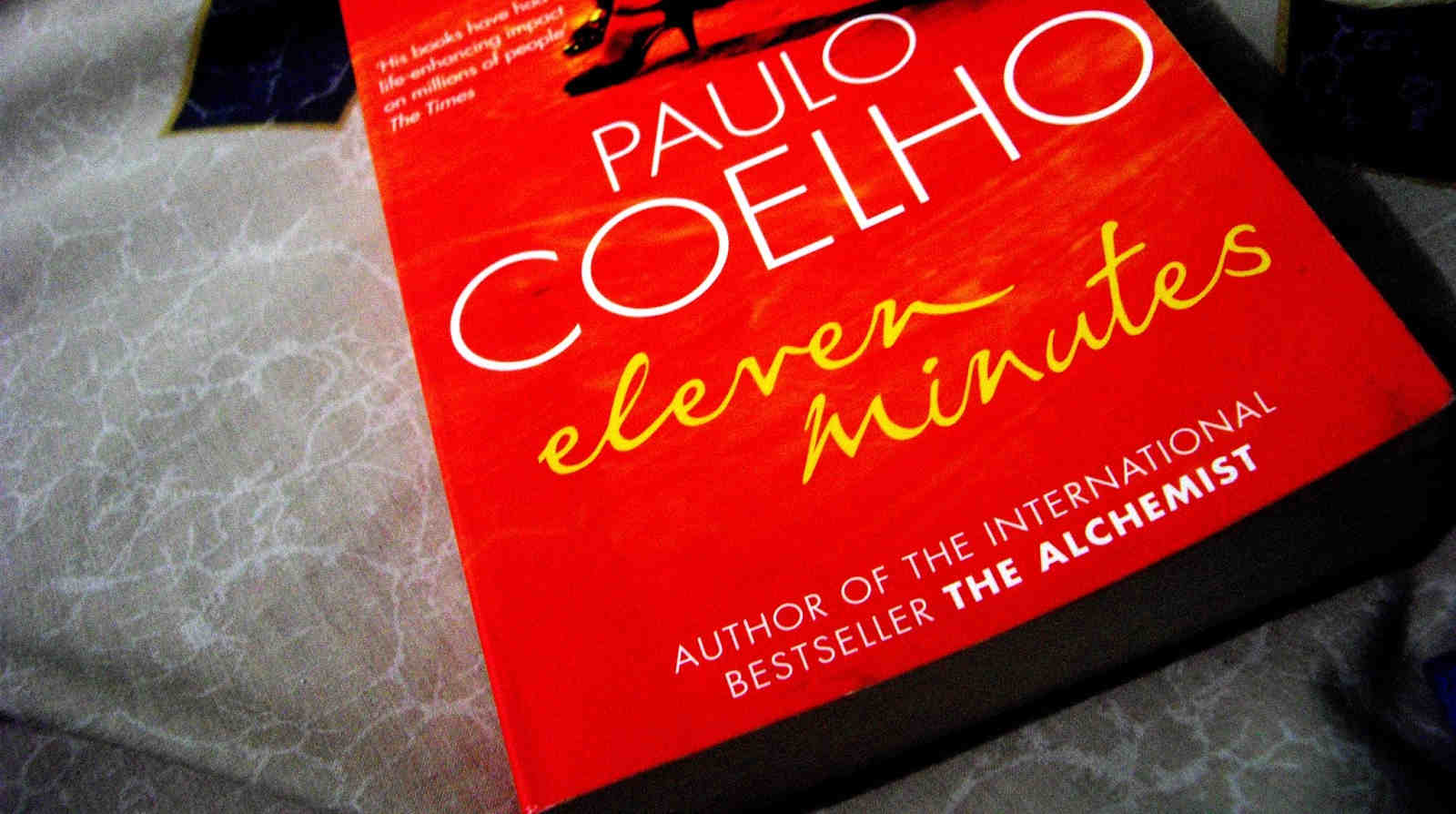By Penny Theodorakopoulou,
I was either 15 or 16. At our English school, our teacher suggested we start reading literary books to enhance our vocabulary (spoiler alert: it actually worked!). So one day, our English teacher brought from her home a dozen of books for us to choose from. There were some classic books, such as Pride and Prejudice, The Picture of Dorian Gray, Moby-Dick, and so on. My eyes fell immediately on a book whose cover was a vivid shade of red, depicting a woman’s legs on heels. The name of the book — Eleven Minutes.
I can say with absolute certainty that it was love at first sight — and reading —, back to the reminiscing. When I got a hold of the book, I immediately turned it over in order to read its summary. I was right for picking this book. Something about the words ‘prostitute’, ‘self-discovery’, ‘love’, and ‘hope’ intrigued me so much, I began reading the book right after class was over. I was so immersed in its plot, I finished reading it in less than 4 days. Note to reader: I am not so much of a literary book reader, so for me, that really is worth mentioning and something to be proud of. Kind of.
Paulo Coehlo: The romantic soul of our hearts
Brazilian author Paulo Coelho is a free spirit who has authored numerous works, but some of them are incomparable. He is well known for the novel The Alchemist (1988), which has sold and been published in millions of copies. Numerous Coelho followers have said that his novels have changed their lives. People adore his stories and eagerly await his new books. He takes his audience and reveals the secret treasure in his writing.
What I, personally, love about Coehlo is his ability not to get lost in long sentences. And to me, that is a very handy skill. You end up spending hours reading his books and it might look like reading for just a few minutes. His writing skills are captivating, as well as his capability of involving you in the storyline of each book. No wonder he has sold literally millions of copies, as mentioned above, whilst also being considered one of the best authors to this day.

About Eleven Minutes: “Once upon a time, there was a prostitute called Maria.”
That very sentence that Coehlo decides to start this book. As he also mentions in the same paragraph, there is something oxymoron about a phrase that you meet in fairy tales and the word ‘prostitute’. Just from that sentence, Coehlo is already making a difference with Eleven Minutes, as we will establish below.
Maria is raised in a small village in Brazil’s interior, where folklore, superstitions, and conventional gender roles are deeply ingrained in the local way of life. Maria’s primary ambition is to find love, get married, and start a family, despite the fact that she does well in school and always attempts to improve her condition by reading books. Maria has had multiple instances of young love, but her true love never materializes. As a result, Maria comes to believe that she is destined to live without that crucial component that she thinks most people discover.
She is unique among the females in her town in that she yearns for adventure, but Maria will not be able to save money for a little getaway until she has graduated and worked two years at a drapery shop. Maria travels to Rio de Janeiro where she meets a Swiss entertainment businessman who convinces her to go back to Switzerland with him and work as a samba dancer in his nightclub. Maria finds out the truth about the agreement as soon as she arrives and is forced into a lifestyle that is considerably more constrained than she had anticipated. She will also receive much less money than she had intended.

Maria loses her job after the man learns that she dated someone she met at the club. Fortunately, the man assists Maria in obtaining a sizeable severance package, allowing her to maintain her lifestyle while searching for new employment. Maria joins a modeling agency and meets a client to talk about a fashion show, but she ends up having a sexual relationship with the man for financial gain. Maria’s job as a prostitute is just getting started, and she does it because it pays well for minimal risk.
As the plot develops, Maria is now employed as a prostitute in a club on a street in Geneva that is known for hosting similar establishments. She has a large clientele and earns a sizable sum of money, which she intends to use to go back to Brazil in one year. Maria has a variety of sex encounters while she is in Geneva, but forbids her soul from participating. Maria learns about sadomasochism as well, which she may have done if she had not run across the painter, Hart, who falls in love with her and shows her that love does not have to involve suffering, as she says in the book (“Love is a terrible thing that will make you suffer…”).
Maria meets the painter at the Paris airport during her layover on her way back to Brazil, and they immediately fall in love. Maria has at least discovered mutual love, something she had believed would evade her for the rest of her life, even though it is unclear whether she will wed the painter. Maria experiences soul-to-body love for the first time in a very long time.
An afterword about Eleven Minutes
When it comes to the author, Paulo Coelho’s works and stories never fail to surprise. It always transports peculiar items. Another novel of his I have read and adored is Veronika Decides to Die (1998), which was initially quite difficult to comprehend, but extremely interesting. His books vary in themes and plots, always offering his readers something fresh and new while also adding his personal and unique way of describing the plot of each book.
The novel, as expected, contains some mature material, but besides that, it also contains more thought-provoking material, such as the history of prostitution, where people formerly saw sex as a sacred object. One’s own inner light and the collective light of all souls are fascinating. The author has thrown in a few intriguing Brazilian tales and superstitions here and there. I am the type of person who enjoys reading about various myths, superstitions, customs, and cultures, which made the book even more appealing to me. In addition, this book discusses a kind of love between two souls that is completely different from what our culture tells us about love, aside from physical attributes, social standing, virtues, and libido.
The writing is simple and easy to understand. Speaking of Maria, she stands out from other girls because she is brave and adventurous. She expresses her ideas about love, passion, freedom, expectations, and fate in the most subtle yet powerful ways. A few interspersed passages from Maria’s diary provide insightful and enlightening observations on life, souls, predestination, inner light, and fascinating connecting connections. It took me a short while to comprehend and process it. I even went back and read the philosophical passages.

To conclude, we could — hypothetically — compare ourselves to Maria and see any similarities. So dissatisfied, so illiterate, yet yearning for something that no amount of words can describe. But we lack the confidence to discuss or acknowledge it among ourselves. Therefore, I advise everyone to read this book slowly and honestly. Let that which you fight to push to the back of your thoughts take precedence without giving it any thought.
P.S.: I would like to end this review with a quote I found on a site regarding Eleven Minutes that has astounded me:
“I always used to wonder what motivation prostitutes could have other than money. This book taught me that motivation is much bigger than money. It is those Eleven Minutes”.




